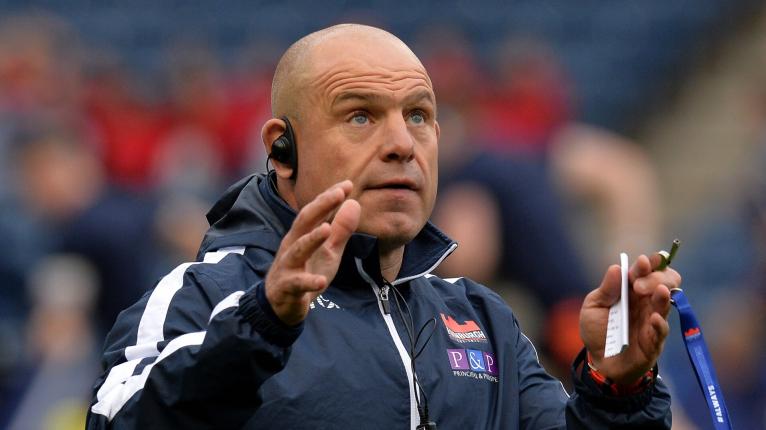'Mini Murrayfield' delay is giving SRU boss grey hairs

The ongoing delay in building a new home for Edinburgh has left exasperated Scottish Rugby Union chief operating officer Dominic McKay “getting grey hairs”.
It was 2018 when the SRU secured planning permission off of the City of Edinburgh Council to construct a 7,800-capacity stadium – known as Mini Murrayfield – on the Murrayfield back pitches. However, alleged council red tape has since held up the project.
Edinburgh confirmed in April that rather than moving into their new stadium for the start of the 2019/20 season, they will continue to play instead at the 67,000-seater national stadium.
It’s a delay that has deeply frustrated McKay. “I am growing grey hairs as a result of the time it is taking to work through some of the red tape in this city,” said the SRU administrator in a Wednesday report in The Scotsman. “We’ve got a very positive experience through in Glasgow, where we’ve done some great work.”
Scotstoun, where the SRU are tenants of Glasgow Life, has been used by the Warriors since 2012 and plans were recently unveiled to increase its capacity from 8,000 to 12,000.
NEWS | New stadium update
Full story 👉 https://t.co/Y0VNff6ZrQ pic.twitter.com/rvwF1vhW80
— Edinburgh Rugby (@EdinburghRugby) April 8, 2019
“We need them [City of Edinburgh Council] to pull out the stops to make sure we can deliver this facility,” continued McKay about the delay in the Murrayfield project. “We’ve got our planning permission but there are a few bits of red tape to work through, so [it will be] as soon as possible.
“There has been progress. Naturally, doing a facility as large as we’re trying to do takes some people a while to get their head around, so we’re working our way through that as fast as we possibly can.
“There is a big backlog at the moment… it’s not a glitch on our side. The thrust of the plans are the same. So, the planning permission we have received is unchanged but, naturally, as you work your way through dialogue and discussion around any sort of facility activity, you will tweak a few things but nothing significant.

“What we are particularly proud about is the importance of delivering for the fans for Edinburgh – we’ve said that for some considerable time – we want to give them a home we can all be proud of.
“We’ve got the land here, we’ve got the space here, we’ve got the vision and the money to make it happen so, hopefully, we can issue an update in the very near future.”
WATCH: Part one of the two-part RugbyPass documentary on what fans can expect in Japan at this year’s World Cup

































































